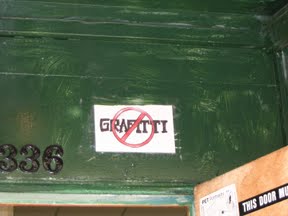
Wordsmithing remains a critical talent. Whether it is crafting the right slogan, snaring a killer title for your email campaign or cutting down to 140 characters the sweetest tweet, the word is [still] in. If images and videos generally gain more traction on the ‘net, the filter through which you have to go to get to them remains, by and large, the written word.
EMOTIONAL TITLES
In terms of creating powerful titles that are capable of punching through the noise, emotionally charged titles will typically win out. Thanks to a tip from the ebullient Larry Beacham, I got turned on to this Advanced Marketing Institute free service (limited to 20 words though) which algorithmically determines the emotional impact of your title. The site calculates an Emotional Marketing Value rating. The algorithm takes into account intellectual, empathetic and spiritual factors. According to their verbiage:
Intellectual words are especially effective when offering products and services that require reasoning or careful evaluation.
Empathetic words often bring out profound and strong positive emotional reactions in people.
Spiritual words have the strongest potential for influence and often appeal to people at a very deep emotional level.
Getting a title right also depends on your intended audience, the context in which it appears as well as capturing the nature of the article that follows (i.e on message).
GET YOUR SPELING RIGHT, TO?

English is a global language with various official forms (notably — but not limited to — British & American) and, considering its reach, the number of different accents, spellings and interpretations of English could make for endless humo[u]r. English is (at least for now) also the dominant language of the Internet. I would argue that, in this context, to the extent the Internet has an ever-extending long tail, getting spelling right is absolutely vital.
Compensating for the misspellings, Google and Yahoo (to cite the majors) have a nice habit of catching (what might be generously called) inadvertent typos and proposing searches for the correct spelling. All the same, brands must remember (in part also as a protection against crafty URL fishers) to reserve URLs of all spellings around their official brand name in order to accommodate a less-literate fan base. After coming across the story of the valiant Tipp-Ex kids, Jeff Deck and Ben Henson (who went around America to search & correct typos) and thinking about the reliance on word search in Google, it is probably more important to have proper spelling than proper grammar (although I would prefer more of both). I enjoyed this interview, in Salon, of Jeff Deck and how he refers to the two ‘schools’ with regard to spelling and grammar principles: the Hawks and Hippies. Hawks are intransigent on the need for ONE standard system of English. Hippies are ‘descriptivists‘ who support the evolutionary nature of the language, which has participated in making English such an enduring force. And, in the realm of keeping up with the Jones’, Peter Roy Clark, a senior scholar at the Poynter Institute in St. Petersburg, Florida, has just come out with an updated review of contemporary grammar in “The Glamour of Grammar.” (See here for the New York Times book review)
I would argue that good writers / copywriters are going to remain very important as part of a communication plan and, in English at any rate, the power of a good copywriter will be knowing how to evolve with the times to find the right emotional touch, all the while being accurate. In all likelihood, English with its 500,000 words must remain an organic, fluid language; but we should not back down from the discipline of proper spelling and good grammar. It is a fine balance. When referring to the pillar Académie Française — whose role is to uphold the French language — Deck says, “I think it is possible to get a little too academic about standards.” Yes, well put.











Great article, Thank you!
For us who studied English the British way, as a third language and now live in the US, we sometimes come up with words that we believe they exist in English (or we think they should), such as perfection[ize], or is it "cool" to merge foreign languages with English words to make it sound unique? From a branding prospective, it is key to play with the words to name your brand. I one day "googled" this subject and found interesting articles about crafting a unique brand name, from considering the name as a verb (e.g. google it) or the combination of two words (e.g. Facebook, youtube) or even as a misspell such (e.g. Flikr).
I would be curious to know what sort of words will be officially added to the dictionary.
Since English has a number of accepted forms (British & American), there has been an openness on both sides of the Atlantic to variations on the z/s or/our. English is a fairly flexible language. The English even accept the name being borrowed by Americans for their dialect!
Clever brand names that manage cut the number of letters to make shorter URLs are definitely accepted practice in English/American — less so in French.
Touché on the point about compound words. Very German I would say.
Until such time as sites like Flikr, Talkr etc become household names, I don't see them being introduced into the dictionary. But we are bound to see words like "to facebook someone" (to send an FB message) or "I youtubed"… Certainly if twitter sticks around, there's a whole new range of words to add (tweeting, twitterville, tweeversation…).